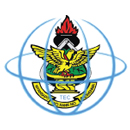Title of Research
E-Micromobility in Ghana
Principal Investigator / Project Coordinator
Dr. Godwin Ayetor, Mechanical Engineering Department
Research Team Members and Departments
Other Collaborating Institutions or Departments
Bochum University of Applied Sciences
Research Amount/ Grant size
Funding Agency/Source of funding
German Federal Ministry for Economic Cooperation and Development. Specifically, it is sponsored by the GIZ Pan-African Mobility Alliance (PAMA) and Invest for jobs program.
Research Duration (Start and End Date)
August 2021 to December 2021 with very likely extension to 2024
Research Story/ Article
KNUST has signed a memorandum of understanding (MOU) with the Bochum University of Applied Sciences, Germany based on the project “E-Micromobility in Ghana”. The project focuses on electromobility options in a larger population such as university campuses and industrial enclaves and is funded by the German Federal Ministry for Economic Cooperation and Development. Specifically, it is sponsored by the GIZ Pan-African Mobility Alliance (PAMA) and Invest for jobs program.
The Project duration is August 2021 to December 2021 with very likely extension to 2024. Under the current cooperation with The Brew-Hammond Energy Center, the following is tenable at KNUST.
- Two solar charging stations are to be installed at KNUST in November 2021. The likely locations are the College of Engineering laboratory and the parade ground near the library.
- Two electric mopeds (e-mopeds) will be operated on the KNUST campus. As part of the feasibility studies for e-mopeds operation on KNUST campus, these mopeds will be piloted across KNUST campus for two months during which period data will be collected on its operation. The e-mopeds will be donated to KNUST upon completion of the conception phase of the project in December 2021.
- E-mopeds will be used on campus purely for research purposes. This would not be a commercial exercise. The project pilot phase is until December 2021; however, we are in discussions with GIZ and BMZ to continue until October 2024 in the implementation phase of the project. Within this period, no e-mopeds will be used for commercial activities. Use of these devices will be based on a sharing system much like Uber where registered (licensed) and trained staff as well as research students will be able to use them to fulfil their research objectives.
- In addition, the electromobility makerspace will be constructed to continue the research into electromobility devices in Ghana. This will include the building/rehabilitation of a building for e-mobility on campus. The suggested location is the uncompleted building across the road opposite the Automobile Engineering Workshop at the College of Engineering.
